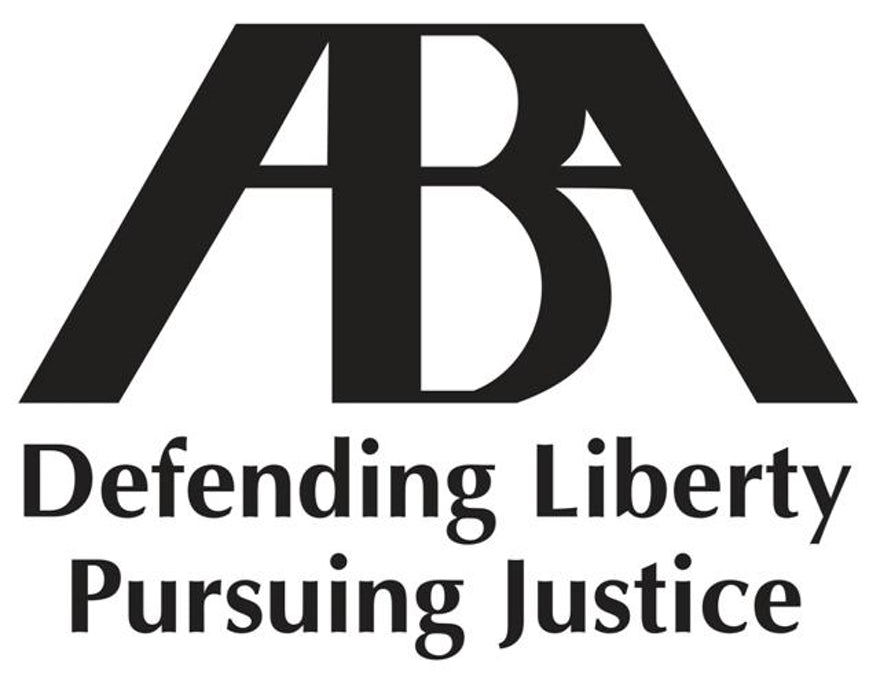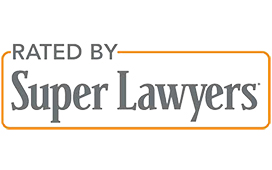Chapter 7 vs Chapter 11 Bankruptcy
Deciding on Debt Relief: Navigating Chapter 7 vs Chapter 11 Bankruptcy Differences
Facing overwhelming business debt can be paralyzing. Bankruptcy offers options, but understanding the difference between Chapter 7 vs Chapter 11 is critical for making the best decision for your business’s future.
Nevada Bankruptcy Attorneys: Guiding Businesses Through Complex Decisions
Our experienced team understands the nuances of business bankruptcy law in Nevada. We’ll provide clear information and strategic guidance to help you determine if bankruptcy is necessary and, if so, which type aligns with your goals.
Understanding the Key Differences
- Chapter 7: “Liquidation bankruptcy” – Designed to wind down a business, sell assets, and distribute the proceeds to creditors.
- Chapter 11: “Reorganization bankruptcy” – Allows a business to continue operating while developing a court-approved plan to restructure debt and improve financial health.
Which Chapter Aligns with Your Situation?
The right choice depends on factors such as:
- The nature of your business debts
- Your desire to continue operating
- Your business’s long-term viability
Don’t Navigate This Alone – Get Expert Bankruptcy Counsel
Schedule a confidential consultation with the Nevada Bankruptcy Attorneys. We’ll analyze your business’s finances and discuss your options under bankruptcy law.
Key Takeaways
- Chapter 7 bankruptcy involves liquidating non-exempt assets to repay creditors and is available to individuals and businesses, with eligibility determined by a means test assessing income and debt.
- Chapter 11 bankruptcy primarily assists businesses in restructuring their debts to remain operational, requiring a feasible reorganization plan and is more complex and costly than Chapter 7.
- The decision between Chapter 7 and Chapter 11 bankruptcies depends on individual circumstances such as income, asset value, and future financial goals, making consultation with a legal professional advisable.
Understanding Chapter 7 Bankruptcy

Chapter 7 bankruptcy, often referred to as straight or liquidation bankruptcy, can offer a fresh start to those drowning in debt. This type of bankruptcy is available to both individuals and businesses, but it’s most often utilized by individuals. The primary goal of Chapter 7 is to liquidate non-exempt assets, such as certain personal items, to repay unsecured debt, offering an opportunity for debt relief.
A court-appointed trustee holds a significant role in the Chapter 7 process. The trustee’s responsibilities include:
- Overseeing the liquidation process
- Distributing the proceeds from the sold assets to the creditors
- Assisting in discharging the debtor from prepetition debts
This process is governed by the federal bankruptcy code and is under the jurisdiction of the bankruptcy court.
Eligibility for Chapter 7
Qualifying for Chapter 7 bankruptcy isn’t a given. A ‘means test’ evaluates a potential candidate’s income and debt to establish eligibility. To qualify, an individual’s monthly income must be lower than the state median for their household size, and they must complete proper exemption paperwork.
Applicants whose income exceeds the median, and who have the financial ability to address unsecured debts, generally do not qualify for Chapter 7 bankruptcy. Additionally, completion of credit counseling is a mandatory requirement before filing for Chapter 7 bankruptcy as per the Bankruptcy Abuse Prevention and Consumer Protection Act. The CARES Act further modified the definitions of ‘current monthly income’ and ‘disposable income’ for Chapter 7 means testing by excluding COVID-19 relief payments.
The Role of the Trustee
The court-appointed trustee is essential in carrying out Chapter 7 bankruptcy. The trustee is responsible for collecting the debtor’s non-exempt assets, selling them, and distributing the proceeds to creditors.
The trustee in a bankruptcy case has several important responsibilities, including:
- Managing the bankruptcy estate
- Recovering assets that were wrongfully transferred out of the debtor’s estate prior to the bankruptcy filing
- Seeking court or trustee approval for any use or transfer of estate assets by debtors or other entities
These responsibilities help ensure that the bankruptcy process is fair and that creditors are able to receive as much repayment as possible through the efforts to pay creditors.
By overseeing the liquidation process and ensuring compliance with bankruptcy laws, the trustee upholds the interests of creditors during the Chapter 7 case.
Dischargeable and Non-Dischargeable Debts
Debts such as credit card balances, medical bills, and personal loans can typically be discharged through Chapter 7 bankruptcy. This means that after the bankruptcy process, these remaining debts are wiped out, and the debtor is no longer obligated to pay them. This bankruptcy discharge is one of the key advantages of Chapter 7 bankruptcy – it allows individuals to get rid of unsecured debts and make a fresh start, while secured debt may require a different approach.
However, keep in mind that Chapter 7 bankruptcy cannot discharge all debts. Certain responsibilities such as:
- Child support
- Alimony
- Taxes
- Certain student loan obligations
Generally are not discharged. These non-dischargeable debts remain with the debtor even after the bankruptcy process, and they must continue to be paid.
Understanding Chapter 11 Bankruptcy

Conversely, businesses are the main target for Chapter 11 bankruptcy. It offers a lifeline to businesses struggling with crippling debt, allowing them to stay open, maintain day-to-day operations, and reorganize their financial affairs. This is achieved by renegotiating or canceling certain obligations such as supply and vendor contracts, loans, real estate leases, and other debts.
Chapter 11 bankruptcy can be especially beneficial for businesses with profitable operations that need to restructure to potentially emerge stronger. A business filing for Chapter 11 may continue to run its operations and have a measure of control over the bankruptcy process as a debtor-in-possession. It’s typically filed by companies and certain individuals with high income that have substantial debt burdens beyond the scope of Chapter 13.
Eligibility for Chapter 11
For a business to qualify for Chapter 11, they need to present a feasible reorganization plan that depicts a clear path to financial stability. It’s crucial that the business shows profitability or the potential for future profitability.
Individuals, though less common, can also be eligible for Chapter 11 if they possess substantial assets or investments that can be reorganized or liquidated. This is typically the case for high-income individuals or those with complex debt situations.
Reorganization Plan
The reorganization plan is fundamental to Chapter 11 bankruptcy. It’s the debtor’s responsibility to develop this plan, which outlines the strategy for reorganizing their debt and returning to a stable financial footing. Small business debtors are required to file the plan within 180 days.
The plan must:
- Classify claims
- Detail the treatment of each class
- Propose to restructure debts by reducing amounts owed, extending payment terms, or negotiating lower interest rates
Key assets can be retained under Chapter 11, which may be crucial for the company’s restructuring efforts and future viability. After reviewing the disclosure statement detailing the debtor’s financial situation, creditors have an opportunity to influence the reorganization plan by voting on it.
A court confirmation hearing is held to ascertain whether the reorganization plan satisfies all necessary legal requirements and possesses adequate creditor support.
Debtor-in-Possession Status
One of the unique aspects of Chapter 11 bankruptcy is that the debtor, in most cases, retains control of the business operations during the bankruptcy process as a debtor-in-possession. This grants them the ability to continue operating the business and making decisions about daily operations throughout the bankruptcy case.
However, this control is not without limitations. The debtor in possession must comply with the rules and orders of the bankruptcy court. They can incur new debts and obtain credit during Chapter 11, but may need court approval for certain types of new obligations. This allows the business to continue operating while working towards a resolution of its debts.
Comparing Chapter 7 and Chapter 11 Bankruptcy

Understanding the differences between bankruptcy chapters, such as Chapter 7 and Chapter 11 bankruptcy, is crucial as they both offer ways to discharge debts but are fundamentally different in their approach. Chapter 7 centers on liquidating assets to discharge debts, whereas businesses primarily use Chapter 11 to reorganize debt and maintain operations.
The process for each is also different. The Chapter 7 liquidation process is typically faster and simpler than the complex and costlier reorganization process required for Chapter 11. In Chapter 7, secured debts are prioritized over unsecured debts during the liquidation of assets.
The choice between filing for Chapter 7 or Chapter 11 bankruptcy ultimately depends on the debtor’s individual circumstances, such as their ability to pass the means test for Chapter 7 or their desire to continue business operations under Chapter 11.
Asset Liquidation vs. Reorganization
One of the key differences between Chapter 7 and Chapter 11 lies in their approach to dealing with the debtor’s assets. In Chapter 7 bankruptcy, assets are liquidated to pay off creditors. This process involves selling off non-exempt assets and using the proceeds to repay debts.
On the other hand, Chapter 11 bankruptcy allows businesses to retain and restructure their operations instead of liquidating assets. This approach is based on the premise that the business has a viable operation that, if restructured, could generate sufficient income to repay creditors and return to profitability.
Debt Repayment Strategies
The strategies for debt repayment also differ between Chapter 7 and Chapter 11. In Chapter 7 bankruptcy, non-exempt assets are liquidated to repay secured creditors first, followed by distribution of remaining assets among unsecured creditors if any funds are available.
Conversely, Chapter 11 bankruptcy enables companies to:
- Restructure their debts with the goal of repaying creditors over time through future earnings
- Continue operations
- Operate under court supervision
- Provide a pathway to financial recovery.
Eligibility Requirements
Eligibility requirements for Chapter 7 and Chapter 11 vary significantly. Chapter 7 bankruptcy is accessible to a wide range of debtors, including individuals, corporations, and small businesses. However, to qualify, debtors must pass the means test, which assesses their income and debt levels.
Chapter 11, while available for voluntary and involuntary filing by businesses and individuals, is primarily used by larger businesses due to its complexity and associated costs. Individuals are eligible to file for Chapter 11 bankruptcy if their debt exceeds the limits set for Chapter 13, while businesses must be engaged in commercial or business activities to qualify.
Factors to Consider When Choosing Between Chapter 7 and Chapter 11 Bankruptcy

The choice between Chapter 7 and Chapter 11 bankruptcy extends beyond merely grasping the workings of each option. It involves considering a variety of factors tailored to your personal circumstances and future goals. This includes assessing your financial situation, considering your future plans and goals, and seeking legal advice.
Assessing Your Financial Situation
Conducting a comprehensive evaluation of your financial situation is the first step to making a well-informed decision about bankruptcy. This involves compiling all relevant financial documents, such as bank statements, tax returns, pay stubs, and outstanding bills. Organizing these documents is essential for streamlining the filing process for any bankruptcy chapter.
In addition, accurately assessing your total debt, monthly expenses, income, and conducting a thorough review of your assets and debts are fundamental in determining the most appropriate type of bankruptcy to file. It’s also crucial to ensure honest and complete disclosure of all assets and liabilities to prevent case dismissal or fraud allegations.
Considering Future Plans and Goals
Your decision between Chapter 7 and Chapter 11 should be significantly influenced by your future plans and objectives. For instance, if you’re an entrepreneur with a struggling business that has the potential to become profitable in the future, you might consider Chapter 11 bankruptcy. This would allow you to restructure your debts and continue operating your business.
On the other hand, if you’re an individual with no significant assets and a low income, Chapter 7 may be the more suitable option. This would allow you to discharge most of your unsecured debts and give you a fresh start.
Seeking Legal Advice
Considering the intricacy of bankruptcy laws and the gravity of the results, it is strongly advised to seek legal counsel. A knowledgeable bankruptcy attorney can evaluate your unique circumstances and guide you through the process, ensuring you make the best decision for your financial future.
The role of a bankruptcy attorney includes:
- Providing legal advice
- Advocating for you in court proceedings
- Educating you on the implications of bankruptcy
- Strategizing to align the process with your financial objectives
By providing valuable insights and clear guidance, they can help you navigate the intricacies of bankruptcy and make the process less daunting.
Bankruptcy Alternatives

Bankruptcy is a grave decision and should only be contemplated as a final option after surveying all other alternatives. Some alternatives to bankruptcy include:
- Debt consolidation
- Credit counseling
- Debt management plans
- Debt settlement
Each of these options has its own pros and cons. For example:
- Debt consolidation simplifies payments and potentially reduces the cost of debt but may require collateral and doesn’t reduce the total debt owed.
- Credit counseling and debt management plans can help manage debt and create a structured repayment plan but may have fees and impact your credit score.
- Debt settlement can lower the overall debt but may also harm your credit score and include high fees.
Therefore, it’s crucial to carefully consider these alternatives and consult with a financial advisor or bankruptcy attorney before making a decision.
The Impact of COVID-19 on Bankruptcy
The COVID-19 pandemic has profoundly affected various aspects of life, including the laws and procedures related to bankruptcy. With the need for social distancing and public health concerns, bankruptcy proceedings have been conducted via telephone or web conferencing rather than in-person.
The CARES Act of March 2020 implemented provisions specifically aimed at addressing the needs of those filing for bankruptcy during the COVID-19 crisis. These included amendments to bankruptcy laws to incorporate pandemic-related changes. While these adjustments are currently seen as temporary responses to the pandemic, they may influence future bankruptcy laws and practices.
Summary
In conclusion, deciding between Chapter 7 and Chapter 11 bankruptcy is a multifaceted decision that requires a thorough understanding of each option, careful assessment of your financial situation, consideration of your future plans, and professional legal advice. By bearing these factors in mind, you’ll be better equipped to navigate this complex legal landscape and make the best decision for your financial future.
Frequently Asked Questions
Do Chapter 7 bankruptcies get denied?
Yes, a Chapter 7 discharge may be denied for various reasons, including failure to provide requested tax documents, failure to complete a personal financial management course, or trying to hide property from creditors.
What is the main difference between Chapter 7 and Chapter 11 bankruptcy?
Chapter 7 bankruptcy involves liquidating assets to discharge debts, primarily for individuals, while Chapter 11 allows businesses to reorganize and continue operations. Choose based on your situation.
Who is eligible for Chapter 7 bankruptcy?
To be eligible for Chapter 7 bankruptcy, individuals need to pass a means test based on income and debt. Those whose monthly income is lower than the state median for their household size and have completed proper exemption paperwork usually qualify.
What is the role of a trustee in Chapter 7 bankruptcy?
The role of a trustee in Chapter 7 bankruptcy is to oversee the liquidation process, ensure compliance with bankruptcy laws, and protect creditors’ interests.
How does the reorganization plan work in Chapter 11 bankruptcy?
In Chapter 11 bankruptcy, a reorganization plan works by proposing debt restructuring, such as reducing amounts owed and negotiating lower interest rates, which needs creditor approval to proceed.







